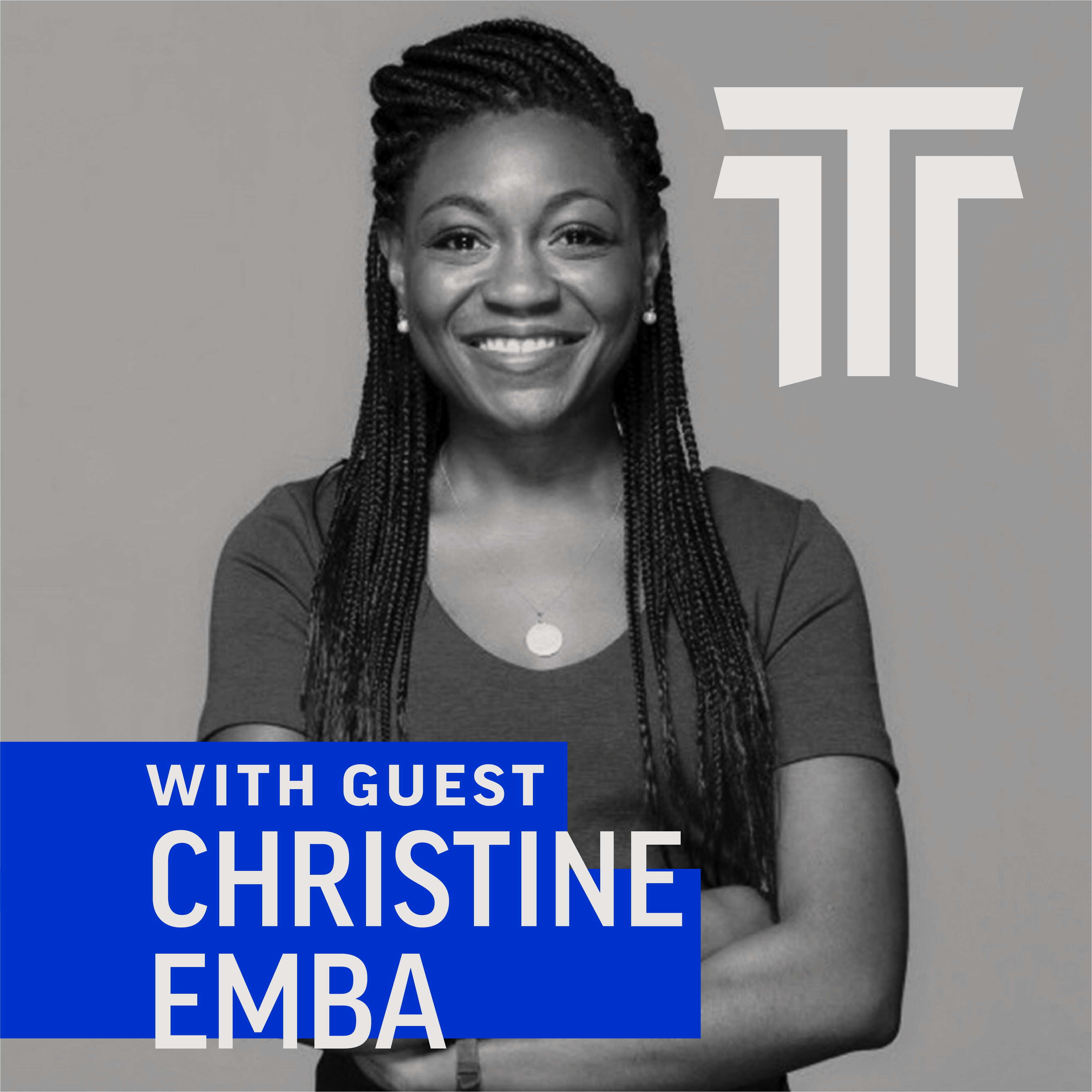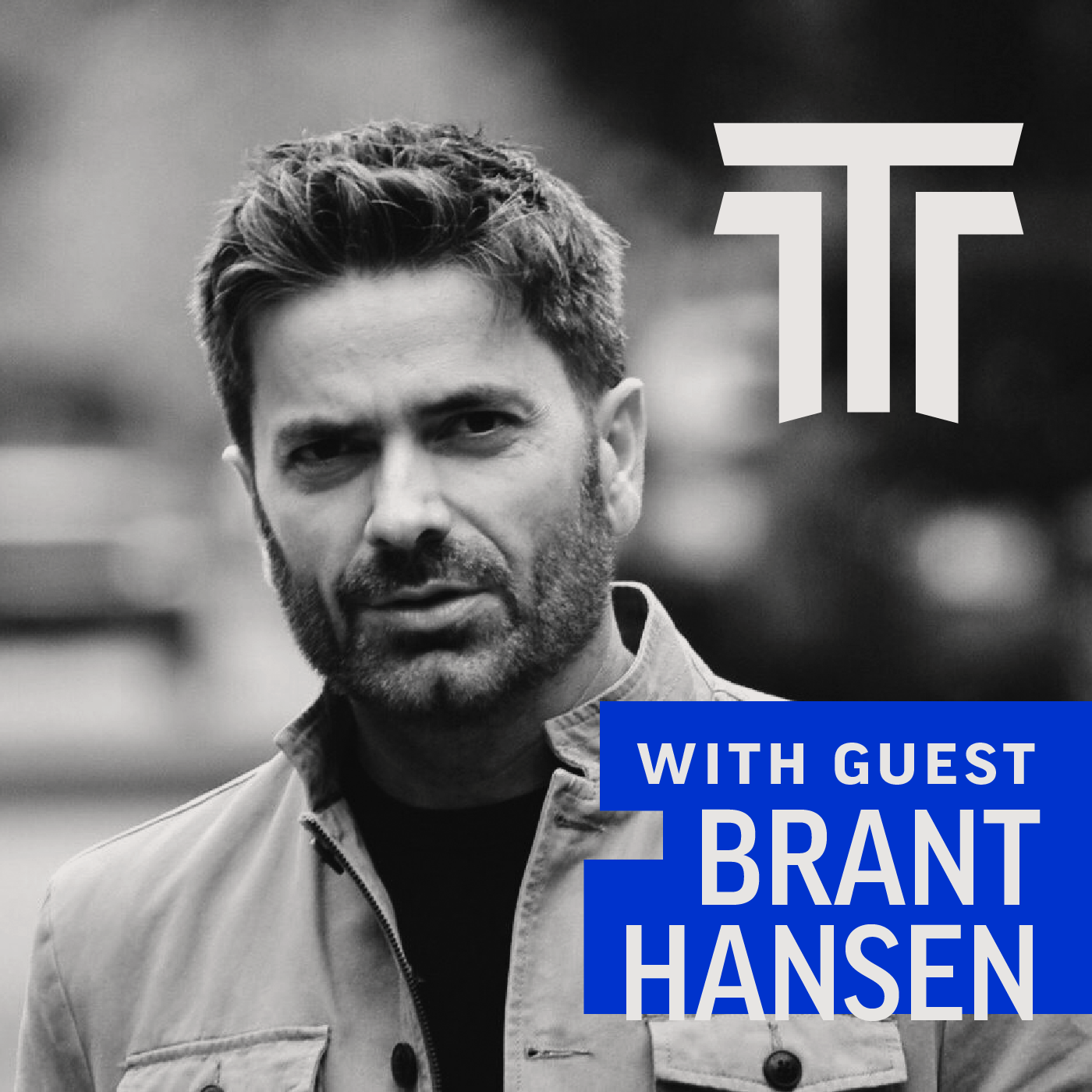Rethinking Sex with Christine Emba
How our culture's faulty assumptions about sex are harming us all
“Anything goes.” That’s what modern-day sexual ethics has taught us. So, why then, do so many of our sexual experiences lead to frustration, disappointment, and shame? Today, Keith talks with Christine Emba, the author of “Rethinking Sex” and a columnist at the Washington Post, to discover more. Christine starts by explaining why she walked away from evangelicalism and how evangelical traditions surrounding sex contributed to her decision. She unpacks the institutional failures of the church...
Read More“Anything goes.” That’s what modern-day sexual ethics has taught us. So, why then, do so many of our sexual experiences lead to frustration, disappointment, and shame? Today, Keith talks with Christine Emba, the author of “Rethinking Sex” and a columnist at the Washington Post, to discover more. Christine starts by explaining why she walked away from evangelicalism and how evangelical traditions surrounding sex contributed to her decision. She unpacks the institutional failures of the church that she believes have led to to today’s mass dechurching movement. Then, she shares some of our culture’s faulty (and harmful!) assumptions about sex, including confusion around consent being enough and men and women’s unwillingness to admit their differences. Plus, how does she define masculinity vs. femininity, and is it harder to be a man in today’s world than it was a generation ago? How can men and women work together to rethink the topic of sex in a more constructive, virtuous way? Listen now!
Have you benefitted personally from Truth Over Tribe or seen it have a positive effect on someone you know? have you used the podcast, book, or blog as a catalyst for conversation on polarizing topics?
We want to hear about it!
Share your story at choosetruthovertribe.com/story.
Ok, truth time... Did you like this episode? Tell us by leaving a rating or review! 🌟🌟🌟🌟🌟 If you did, you won't want to miss what's next (so subscribe now!). And help a friend by sharing this with them. Thank you! 🙏
Plus, the conversation is just beginning! Follow us on Twitter, Facebook, and Instagram to join in on the dialogue! If you disagree with anything in this episode, we'd love to hear your thoughts here. Want to learn more about Truth Over Tribe? Visit our website and subscribe to our weekly newsletter.
Want more truth over tribe? Check out our resources!
Resources

This Week's Hosts
Christine Emba
Christine Emba is an opinion columnist and member of the Editorial Board. She is the author of
Read MoreChristine Emba is an opinion columnist and member of the Editorial Board. She is the author of "Rethinking Sex: A Provocation." Before coming to The Post in 2015, Christine was the Hilton Kramer Fellow in Criticism at the New Criterion and a deputy editor at the Economist Intelligence Unit, focusing on technology and innovation. She grew up in Virginia and holds an A.B. in public and international affairs from Princeton University.
Resources
Check out our resources!Recent Episodes

Trump’s RNC Tells Social Conservatives: “You’re Fired!”
If you watched the Republican National Convention, you noticed several things that seemed… out of place. A Hindu prayer. Hulk Hogan. And a platform that’s strayed from conventional conservative values, including traditional marriage and the sanctity of life. It’s clear: The “new” Republican party is here. And its “Trumpublican” values seem to have sidelined social conservatives. So, what do Christians do now that there is no pro-life party? Will they stand for truth over tribal alliances? Today, Keith and Patrick team up to discuss how Trump seems to have turned his back on the evangelicals who made him President. How will conservatives and Christians respond? Will they change their principles? Or, finally, choose truth over tribe? Listen now!Have you benefitted personally from Truth Over Tribe or seen it have a positive effect on someone you know? have you used the podcast, book, or blog as a catalyst for conversation on polarizing topics?We want to hear about it!Share your story at choosetruthovertribe.com/story.Ok, truth time... Did you like this episode? Tell us by leaving a rating or review! 🌟🌟🌟🌟🌟 If you did, you won't want to miss what's next (so subscribe now!). And help a friend by sharing this with them. Thank you! 🙏Plus, the conversation is just beginning! Follow us on Twitter, Facebook, and Instagram to join in on the dialogue! If you disagree with anything in this episode, we'd love to hear your thoughts here. Want to learn more about Truth Over Tribe? Visit our website and subscribe to our weekly newsletter.Want more truth over tribe? Check out our resources!

Will Trump’s Assassination Attempt Finally Wake Us Up?
On July 13, 2024, former President Donald Trump was almost assassinated at a rally in Butler, Pennsylvania. While it’s not our place to weigh in on many aspects of this horrific attack, we do want to focus on the church: How should Christians respond? On today’s episode, Keith and Patrick issue a call for Christians to think carefully and clearly, put truth over tribe, and realize that our response can have the power to shape the future of the country. They examine how our political climate has led to this point, explaining how our recent political rhetoric has reveled in catastrophizing and how this has not been the norm of civil discourse over the past several decades. They break down how it’s possible to be so violently divided from the “other side” and how political violence, in general, is increasing in both parties. They end by providing practical steps that Christians should take in this moment. Will this assassination attempt be an inflection point? Will the tribalized church finally wake up? Listen now!Have you benefitted personally from Truth Over Tribe or seen it have a positive effect on someone you know? have you used the podcast, book, or blog as a catalyst for conversation on polarizing topics?We want to hear about it!Share your story at choosetruthovertribe.com/story.Ok, truth time... Did you like this episode? Tell us by leaving a rating or review! 🌟🌟🌟🌟🌟 If you did, you won't want to miss what's next (so subscribe now!). And help a friend by sharing this with them. Thank you! 🙏Plus, the conversation is just beginning! Follow us on Twitter, Facebook, and Instagram to join in on the dialogue! If you disagree with anything in this episode, we'd love to hear your thoughts here. Want to learn more about Truth Over Tribe? Visit our website and subscribe to our weekly newsletter.Want more truth over tribe? Check out our resources!

You Don’t Deconstruct from Jesus with Brant Hansen
Life is hard. God is good. Let’s dance. That’s the mantra (and the book title) of today’s podcast guest, Brant Hansen. Brant is an award-winning author and radio show host whose life provides a tangible example of the joy often missing in Christianity today. But his joy doesn’t stem from ignorance or a life free of trauma. Hear him explain to Keith how even though he could have deconstructed his faith, he never could fathom deconstructing from Jesus himself. He uses his own “strange” experiences to illustrate Jesus’s model of Christian neighboring and radical generosity. He also touches on gender roles and a true, biblical vision for masculinity. Need a little joy? You won’t want to miss this one!Have you benefitted personally from Truth Over Tribe or seen it have a positive effect on someone you know? have you used the podcast, book, or blog as a catalyst for conversation on polarizing topics?We want to hear about it!Share your story at choosetruthovertribe.com/story.Ok, truth time... Did you like this episode? Tell us by leaving a rating or review! 🌟🌟🌟🌟🌟 If you did, you won't want to miss what's next (so subscribe now!). And help a friend by sharing this with them. Thank you! 🙏Plus, the conversation is just beginning! Follow us on Twitter, Facebook, and Instagram to join in on the dialogue! If you disagree with anything in this episode, we'd love to hear your thoughts here. Want to learn more about Truth Over Tribe? Visit our website and subscribe to our weekly newsletter.Want more truth over tribe? Check out our resources!